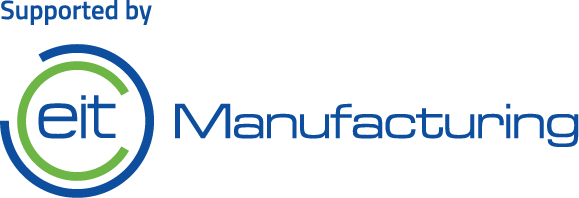Unleashing Success with 'The Lean Startup' Methodology
Book review by Prof. Dr. Bernhard Kölmel
The book "The Lean Startup: How Today's Entrepreneurs Use Continuous Innovation to Create Radically Successful Businesses (Ries, E. (2011). The Lean Startup: How Today’s Entrepreneurs Use Continuous Innovation to Create Radically Successful Businesses. Crown Business)" by Eric Ries is one of the most important basics for future entrepreneurs. The Lean Startup is a guide for startups and entrepreneurs who want to develop innovative and successful businesses.
In the following you will find an overview of the book's main ideas, arguments and contributions.
Summary
The primary focus of The Lean Startup is to help entrepreneurs develop their businesses through continuous innovation and experimentation. Eric Ries argues that the traditional approach to entrepreneurship, where a business plan is developed and executed to completion, is no longer effective in today's fast-paced and rapidly changing markets. Instead, he proposes an iterative and incremental approach to startups that emphasizes learning, experimentation, and flexibility.
The core of the Lean Startup methodology is the build-measure-learn feedback loop. Entrepreneurs begin by building a minimum viable product (MVP), a simple and basic version of the product or service they are developing, to test and validate their assumptions. The MVP is then introduced to a small group of customers, who provide feedback and data on the product's performance through various metrics. This data is used to measure the success of the MVP against specific growth, acquisition, and retention metrics. Finally, entrepreneurs use the feedback and data to learn and adjust their product, strategy, and business model to optimize performance and increase their potential for success.
In addition to the build-measure-learn cycle, the Lean Startup methodology provides other important principles and practices. These include customer development, which involves engaging with customers to validate their needs and preferences; continuous delivery, which emphasizes delivering value to customers quickly and frequently; and the pivot, which involves changing direction and adapting the business model based on customer feedback.
Ries also stresses the importance of a lean startup culture, which promotes a people-first approach that emphasizes continuous learning, experimentation, and innovation. This culture is the foundation for an agile organization that can respond to changing customer needs and market conditions.
Analysis
The Lean Startup is a significant contribution to the field of entrepreneurship and innovation. Ries offers a practical and actionable methodology that challenges traditional assumptions and practices about how startups are developed and managed. By emphasizing the importance of continuous learning, experimentation, and adaptation, Ries shows entrepreneurs and managers how to create businesses that are more responsive to customer needs and market conditions.
One of the strengths of the Lean Startup methodology is its focus on customer development. By engaging with customers early and often, entrepreneurs can validate their assumptions and identify gaps in the market that they can fill. This approach helps entrepreneurs avoid the common mistake of developing products and services that customers do not want or need.
Another key strength of the lean startup methodology is its emphasis on the build-measure-learn feedback loop. This approach allows entrepreneurs to test and validate assumptions quickly and efficiently, which is essential in rapidly changing markets. The loop also provides a framework for continuous learning and adaptation, which is critical to the success of any startup.
The Lean Startup is also significant because it emphasizes the importance of a Lean Startup culture. This culture is characterized by innovation, experimentation, and continuous learning. By establishing a culture that supports these values, entrepreneurs can create an organization that is agile and responsive to changing market conditions.
A potential weakness of the lean startup methodology is that it may be more relevant to some industries than others. For example, it may be more difficult to apply the methodology to industries that require large upfront investments and long development cycles. Nevertheless, the Lean Startup offers useful insights and practices that can be adapted to any industry or business model.
Conclusion
Overall, The Lean Startup is a highly informative and practical guide to starting and growing successful businesses. "The Lean Startup" by Eric Ries is a game-changing book that provides a fresh perspective on entrepreneurship and innovation. Ries introduces the concept of lean startup methodology, which emphasizes rapid experimentation, validated learning, and iterative development. This approach revolutionizes the way entrepreneurs build and grow businesses by emphasizing a scientific and customer-centric approach.
In this book, Ries skillfully explains how entrepreneurs can leverage lean principles to minimize waste, eliminate uncertainty, and increase their chances of creating successful and sustainable businesses. He highlights the importance of continuously testing and adapting ideas based on customer feedback, rather than relying on assumptions or gut feelings.
Ries uses compelling examples and case studies to illustrate the effectiveness of the lean startup approach, showcasing how companies such as Dropbox and Zappos have achieved remarkable success by embracing continuous innovation. He also provides practical advice on key aspects like creating minimum viable products (MVPs), conducting rapid experiments, and using actionable metrics to measure progress.
"The Lean Startup" is not just for aspiring entrepreneurs; it is a valuable resource for anyone interested in innovation and organizational agility. With its clear and concise writing style, the book offers a wealth of actionable insights and strategies that can be applied to any business environment, whether it's a startup or an established company seeking to stay ahead in a rapidly changing market.



